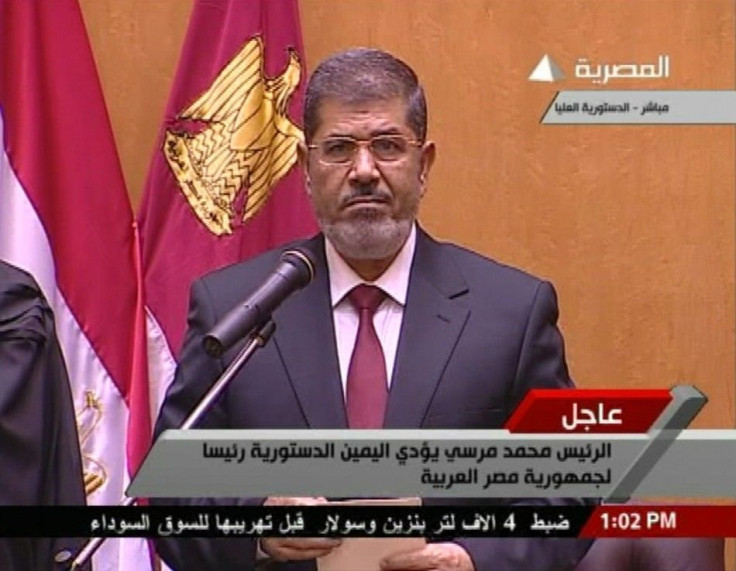Egyptian President, First Democratically Elected Civilian In Nation's History, Sworn In During Defiant Ceremony

Allahu Akbar.
That Arabic phrase, a Muslim affirmation of faith that translates roughly to God is the greatest -- and is among the most commonly uttered statements in the world -- was charged with high symbolism Saturday, after it was used by the new president of Egypt in his inaugural speech as the nation's first democratically elected civilian leader.
God is the greatest, President Mohammed Morsi began his speech, above of everyone.
That introduction, and the body of the speech that followed, marked the beginning of what is likely to be a long odyssey for Morsi, who is trying to use his bully pulpit to reclaim the power of the presidency away from the Egyptian military. In June, the military conducted a judicial coup to make sure that, no matter who occupied the presidential chair, it would still be the generals calling the shots.
After Morsi was formally sworn into office, he was spirited away to Cairo University, where he delivered a speech that both praised and condemned the nation's military.
A politician who won the presidency as the preferred candidate of the Muslim Brotherhood's Freedom and Justice Party, Egypt's largest Islamist party, Morsi is viewed suspiciously by military and secularist forces in Egypt and elsewhere in the Middle East.
The 60-year-old U.S.-trained engineer did his best to assuage those fears, noting Egypt is a civil, national, constitutional and modern state.
Morsi praised the military in the speech, and during two other appearances in previous days, for standing with the Egyptian people against former President Hosni Mubarak.
The Supreme Council of the Armed Forces has kept its promise to not be an alternative to popular will, Morsi said.
However, there was also thinly veiled criticism, as Morsi said the military, now that he was sworn in, would essentially be handing him the power they took away weeks before, a highly unlikely prediction that sets him up for a confrontation with the generals later.
The elected institutions will resume carrying out their role, and the great Egyptian army will go back to focusing on its mission of protecting national security and borders, Morsi said.
There was also another subtle dig at the military, as Morsi repeatedly took pains to show he was not fearful of being swept away from power. At one point in the speech, he brushed aside his security cordon and, showing he was unafraid, opened his jacket to show he wore no body armor.
© Copyright IBTimes 2025. All rights reserved.





















